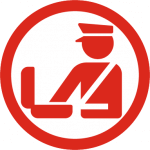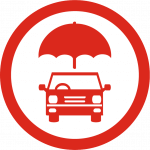Everything You Need to Know About Moving to Australia
New Zealand and Australia have long enjoyed trading citizens, with the trip across the ditch taking less time than the first two Lord of the Rings movies.
Customs
Australian Visa
 |
Australia offers a range of visa options for those wanting to work and live there. Details on work visas are readily available online, which can be used to then apply for permanent residency. Some visas have a ‘no further stay’ condition attached, so you will need to ensure this isn’t the case for you. |
Quarantine
 |
Australia, like New Zealand, is pretty strict on what can and can’t be brought into the country. Things like fresh fruit, homemade foods and pepper spray aren’t going to clear customs, while laser pointers, honey products and medicine will need to be declared The Australian Border Force provides a detailed breakdown of what can and can’t be brought in to Australia. | |
 |
If you’re bringing a family pet with you, you won’t need an import permit for a dog or cat and they won’t need to stay in quarantine. Animals other than a dog or cat can be difficult to bring into the country, but the experts at Grace can help. Either way, you’ll want to make sure your pet is up to date on their vaccinations, and you have all the relevant paperwork organised well in advanced. Grace utilise industry leading pet transportation specialists to ensure your furry friend receives the best of care and is right there with you when you move into your new home. |
Money
Currency
 |
There’s some good news and some bad news. The good news is that Australian currency uses the same terminology and basic metric system. The bad news is the cost of living is slightly higher. Grace is pleased to partner with XE Money Transfer to assist our relocation clients who are transferring funds internationally. |
Banking
 |
Australia has a few large financial institutions, referred to as the Big Four:
There are also several smaller banks that have gained popularity over the recent years due to less fees and overhead costs. The Australian Government runs the MoneySmart website, which provides a range of resources for financial management and banking options. Canstar Blue also provides some interesting customer insights. |
Taxes
 |
To work in Australia, you will need a tax file number (TFN). This allows the Australian Taxation Office (ATO) to collect income taxes throughout the year. It’s a simple process to apply for a TFN, easily done online. You will need your passport and Australian address to complete the process. | |
 |
Beyond income tax, Australia also has a Goods and Services Tax (GST) of ten percent. This is automatically factored into the cost of most day to day items. For the most part taxation is pretty straight forward in Australia, with most information and services accessible through the ATO’s website. |
Health Insurance
 |
Australia has a national health care system, Medicare, which provides free or subsidised services to Australians and permanent residents. As long as you can prove you’ll be living in Australia for at least six months, New Zealand citizens are eligible for Medicare. There are also a range of private health insurance options for services not covered by Medicare, such as dental, optical and ambulance transport services. | |
 |
Ambulance service costs vary depending on where you live, with the service generally being free for local residents in Queensland and Tasmania. If you’re planning on living in any of the other states or territories, purchasing ambulance insurance as a minimum may be required. |
Cost of Living
 |
According to Numbeo, the cost of living is between two and fifteen percent higher than in New Zealand, though this can change depending on where you’re moving from and to. It’s not enough of a difference to cause too much concern though. |
Setting up Home
Buying vs Renting
 |
Whether renting or buying, you’ll probably be going through a real estate agent who act on behalf of the owner. If you have an idea of where you want to live, you can go directly to the local real estate agents, or you can visit places like Realestate.com, Domain and HomeSales. If buying, you may be eligible for the first home owners’ grant. You will also need to consider legal and conveyancing costs as well as mortgages that suit your needs. | |
 |
When renting you will probably be requested to pay the first month up front, along with a rental bond. You will need to check the agreement to confirm who is responsible for utilities such as water. |
Utilities
 |
The Australian government has made some inroads in recent years to address the cost of utilities, encouraging the use of comparison websites and services to help you pick the best solution. A good place to start is Energy Made Easy to have a look at your options and get the best deal. |
Internet and Phone
 |
There are a few major players in the telecommunications industry in Australia, with a range of mobile, landline, internet and pay tv options on the market. Canstar Blue provides some insight into the performance of providers, but you will have to look around at what’s available in your area. If you’re moving to one of the larger cities or capitals, you’ll have a wide range to pick from, but rural and regional areas don’t receive the same service. | |
 |
In terms of television, Australia offers a range of free to air channels. If these aren’t enough to keep you entertained, Foxtel has various packages of extra channels and streaming services such as Netflix, Amazon Prime and Stan are a good start. Fetch TV also offers a way to bring these all together. |
Getting Around
Public Transport
 |
Australia runs a few different methods of public transport, including buses, trains, trams and ferries, depending on where you are. For more detailed information, visit the state public transport sites below:
New South Wales, Victoria, Tasmania, Queensland, South Australia, Western Australia, Northern Territory, Australian Capital Territory |
Driver’s Licence
 |
Driver’s licences are issued by state and territory governments, with slightly different rules and requirements in each. You can face heavy fines for driving without an appropriate licence, so make sure you understand what you need to do once you arrive in your new home state:
New South Wales, Victoria, Tasmania, Queensland, South Australia, Western Australia, Northern Territory, Australian Capital Territory |
|
 |
If you’re living in one of the cities, you may not even need a car, with environmentally friendly options such as cycling being popular within inner city locations in particular.
|
Importing your car to Australia
 |
This is a relatively straightforward process, requiring you to obtain a Vehicle Import Approval before you can even start thinking about the logistics of it. To avoid unnecessary costs and delays, speak to your Grace consultant about organising the safe transport of your vehicle to Australia. |
Buying and registering a car
 |
A good place to start looking for your new ride is CarSales, which lists a range of new and second-hand options. You can also visit dealers directly, but online listings have the benefit of showing private sellers as well.
Most cars will have a current Road Worthy Certificate with purchase, which is required to register the vehicle. You can buy a car without the certificate, but you won’t be able to register it until it passes an inspection. You will also need to add registration, transfer, stamp duty and insurance costs to the purchase price |
|
 |
Australia has compulsory third party insurance for motor vehicles. You can use various market comparison websites, such as Compare the Market, iSelect and Finder, to find the best fit for you. |
Children
School Options
 |
Australia requires children to attend school from five years of age through to the completion of Year 10. Once they’ve completed Year 10, they must participate in full-time education, training or employment, or a combination of the three, for at least 25 hours a week until they are 17.
Australia has a range of school options, classified as either public or private. Public schools are government funded and are mostly free, though many require a small annual fee to cover educational and sporting programs throughout the year. |
|
 |
Non-government, or private, schools are partially funded by the government and charge annual school fees. These usually have a religious affiliation or a particular educational philosophy. While public schools may require you to live within a certain suburb or catchment area, private institutes a are a little more flexible. If this is your preferred avenue, you will need to contact your school of choice to discuss your options. | |
 |
Many schools run internal after school programs. For those that don’t, they should be able to provide some options and recommendations for local options. |
Tertiary Education
 |
If your kids are done with high school or want to pursue technical or trade skills, there are numerous options for them. My Skills is a great place to start when looking for the right course and provider options. Financial assistance may be available through the Australian Government’s VET Student Loans program. Australia also boasts some of the best universities in the world. Luckily, services such as QILT exist to help you find the best fit. Most universities will also offer financial assistance through FEE-HELP. You will need to discuss your eligibility for student loans and Fee-Help with your chosen institute. |
Work Stuff
 |
The Australian job market is a pretty competitive space, so if you’re not moving with a job already secured, you may face some initial troubles. The most common job search websites include Seek, Jora, Indeed and CareerOne. It’s a good idea to set up profiles on a few websites, and look at expanding your professional network through LinkedIn, as that will also provide additional opportunities.
One thing you probably won’t have to worry about is recognition of prior learning (RPL) thanks to the trans-Tasman Mutual Recognition agreement. You’ll need to contact Australian Education International to obtain recognition. |
Contact Grace
 |
Moving countries is a big decision and requires more planning than you’d expect. It’s best to trust the experts to ensure your furniture shipment arrives on time, your car makes it to the right city and your pets are ready to move into your new home right beside you. Grace Removals take the stress out of moving, so give us a call on 0800 472 2369 or use our quick quote tool. |


